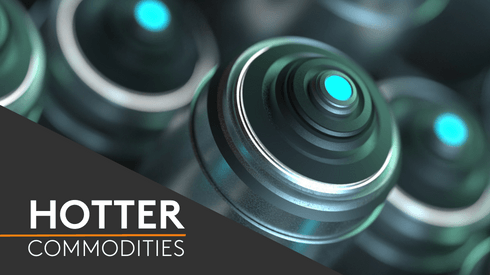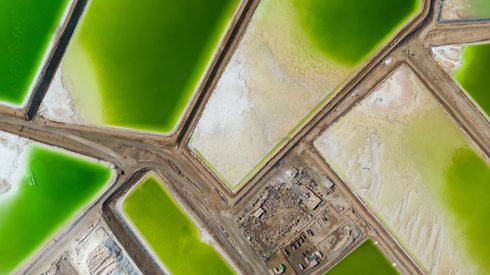The majority of global lithium carbonate supply is currently tied up in mid- and long-term contracts with South American and Chinese suppliers. As a result, buyers in Japan, South Korea, Europe and the United States are seeking to book spot cargo to take advantage of cheaper Chinese material.
“Most of the lithium carbonate in Japan comes from South America where there isn’t the same downward price trend seen in the Chinese market,” a Japanese trader said.
“There’s more opportunity now [to buy at a lower cost] with everyone looking to sell,” a second Japanese trader said.
A few Chinese suppliers recently received enquiries about exporting battery-grade lithium carbonate to South Korea or Japan.
“We haven’t exported any lithium carbonate before. Normally domestic demand takes up most of the supply,” a sales official at a Chinese lithium salt producer told Fastmarkets.
Currently, however, uncertainty surrounding China’s domestic demand recovery has forced Chinese lithium producers to consider selling to alternative markets.
“Every domestic lithium carbonate seller is trying to export their supply to the international market due to inventory accumulation and very weak demand,” a second Chinese lithium producer source said.
Lower costs have made it financially viable for battery lithium carbonate to be processed into carbonate hydroxide, the raw material South Korean and Japanese battery makers use to make nickel-rich nickel cobalt manganese batteries, sources told Fastmarkets.
Fastmarkets’ last assessment of lithium carbonate 99.5% Li2CO3 min, battery grade, spot price range exw domestic China was 340,000-370,000 yuan ($48,838-53,147) per tonne on March 2, down from 385,000-400,000 yuan per tonne the week prior.
Fastmarkets’ assessment for lithium carbonate 99.5% Li2CO3 min, battery grade, spot prices cif China, Japan & Korea was $58-65 per kg on March 2, down from $65-68 per kg the week before.
Uptick in enquiries for technical grade lithium carbonate for export
A third Chinese lithium salt producer received an enquiry from a European buyer for technical grade carbonate.
“They want to buy at the same level of Chinese domestic price,” a sales official at the producer said.
Moreover, a lithium carbonate technical grade cargo was heard exported to South Korea or Japan at $60 per tonne CIF in mid-February. Chinese sellers subsequently lowered their offers to $58 per tonne CIF to attract more buyers.
Enquiries for technical-grade lithium carbonate are considered unusual due to prices for the material jumping in May-November of the previous year amid a surge in costs for battery-grade material which drove many overseas glass, porcelain and building material makers to use alternatives. The recent price fall has brought these producers back to importing the material from China again, sources told Fastmarkets.
Despite the enquiries, some market participants are uncertain of how much spot Chinese lithium can actually be sold because much of the demand is already met by supplies through term contracts.
“Many buyers are still watching to see if Chinese domestic prices continue to fall and perhaps believe that it is not yet time to buy,” a Chinese trader said.
Some other market sources are doubtful of the process of making lithium hydroxide from lithium carbonate due to a time of around six months to test and qualify a new hydroxide product for use in battery making in Japan and South Korea. This may discourage the import of carbonate from China.
Bearishness in China
Production cuts by downstream Chinese EV and battery producers drove the domestic lithium price to fall from mid-November, after a rally from May brought lithium carbonate price to a record high on November 17, according to Fastmarkets’ assessments.
The downtrend further accelerated in mid-February, following news that a major domestic battery producer would set some of its battery prices with automakers based on a fixed battery-grade lithium hydroxide price of 200,000 yuan per tonne for the next three years to lock in orders.
The news further added to the already bearish market sentiment and led to traders scrambling to sell of their supply before any further downward price correction happens.
Multiple market participants estimated the current lithium carbonate inventory in China’s major lithium-salt-producing province of Qinghai to be roughly 10,000-20,000 tonnes due to the slow consumption, whereas producers could previously sell out their production quickly.
The weakness might soon be felt globally because economic concerns could potentially reduce EV demand.
“Weaker macroeconomics and high interest rates are also making demand for lithium weaker” the second Japan-based trader said.
Keep up to date with global market lithium news, insights and predictions for 2023 and beyond.






